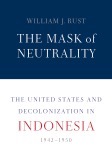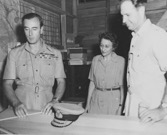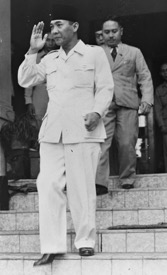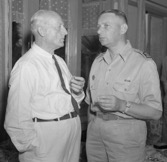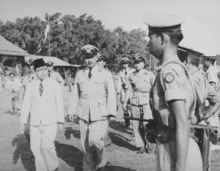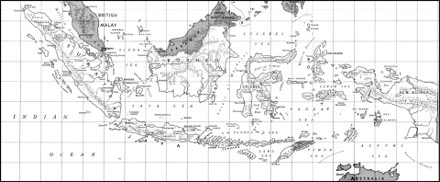The Mask of Neutrality: The United States and Decolonization in Indonesia, 1942–1950 is a meticulously researched account of US relations with Indonesia before, during, and after that nation’s revolution. Drawing on untapped archival resources, the book examines three periods of America’s evolving engagement with Indonesia and the groups battling for control there:
-
•The World War II years, 1942–1945, when the US government’s rhetoric was more anticolonial than its policy;
-
•The Indonesian revolution, 1945–1949, when US policy initially tilted toward the Netherlands and then shifted against it; and
-
•The first year of Indonesia’s internationally recognized independence, 1950, when the legacy of colonialism created internal security problems and when the United States began pressing the Indonesian government to take a more forthright anticommunist stand in the cold war.
Primarily a diplomatic history, the book also explores US intelligence activities in Indonesia, including:
-
•Operations in Sumatra by the Office of Strategic Services (OSS) during World War II;
-
•Espionage by OSS and its immediate successor agency, the Strategic Services Unit, at the beginning of the Indonesian revolution; and
-
•A covert program to arm and train the Mobile Brigade of Indonesia’s national police force—one of CIA’s earliest paramilitary projects in Southeast Asia.
A third interest of The Mask of Neutrality is news reporting about Indonesia in the 1940s and the official use and misuse of public information. A journalism topic discussed in depth is a Dutch-sponsored visit to the archipelago by fifteen American journalists in June and July of 1949.
Included in the book are twenty-five photographs and two maps.
William Rust once again reminds us that we can find no better guide to the labyrinthine origins of America’s tragic entanglements in Southeast Asia. Deeply researched in a broad spectrum of archives and uncovering a range of hitherto little known or even unknown intelligence activities, The Mask of Neutrality explores the twists and turns of the US posture toward the decolonization of Indonesia with insight, nuance, and historical sensibility. A sobering account, it will remain the go-to history for years to come.
Richard Immerman, Temple University
“William Rust likes to say he prefers origins stories. The Mask of Neutrality is just that—for the nation of Indonesia, emerging from its centuries as a Dutch colony. In a history eerily similar to that of Vietnam—and, where the author shows us, Dean Rusk had a ringside seat and ought to have learned the lessons—nationalists have gained the heart of the nation, but Dutch colonialists negotiate insincerely, then fight, to change that. Rust delivers a deep tale of World War II anxieties, inter-allied intrigues, American doubts and internal squabbles, CIA machinations. Its predecessor agency, the OSS, even resorts to kidnapping in order to recruit agents. This is a splendid account, a detailed diplomatic history, and an eye-opening peek at a significant piece of history. Everyone interested in America's role in the world should read The Mask of Neutrality.”
John Prados, author of Safe for Democracy: The Secret Wars of the CIA
“William Rust has done it again. The Mask of Neutrality: The United States and Decolonization in Indonesia, 1942-1950, is another tour de force about American intervention in Southeast Asia after World War II. As with his books about Vietnam, Cambodia, and Laos, Rust looks at the dynamic trends of dying colonialism, the emerging Cold War, and American efforts to influence events in the region through diplomacy, espionage, and military pressure. His look at the efforts of CIA and its predecessor agencies to field an intelligence service with eyes and ears on the ground is especially revealing.”
John Nixon, author of Debriefing the President: The Interrogation of Saddam Hussein

